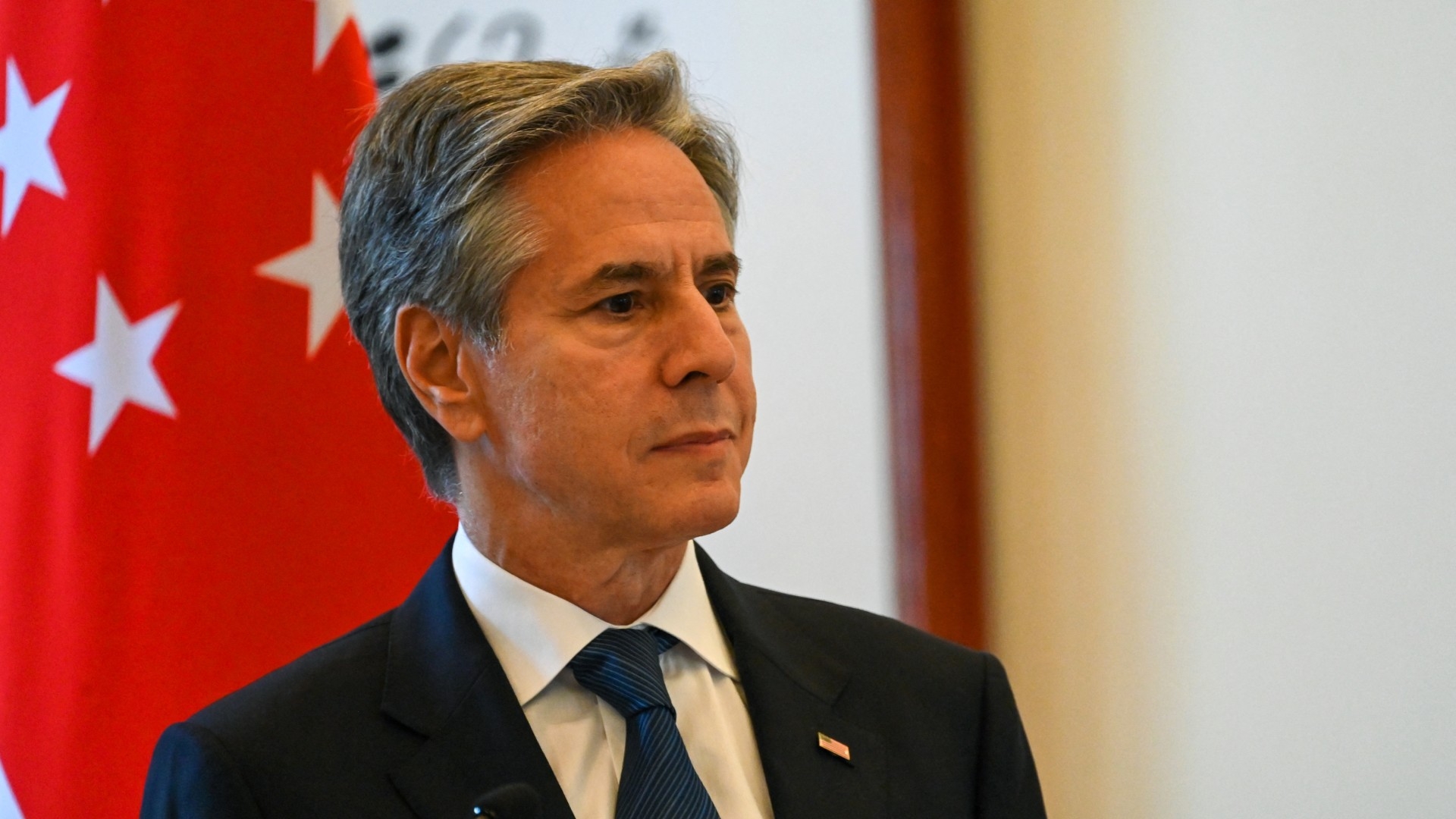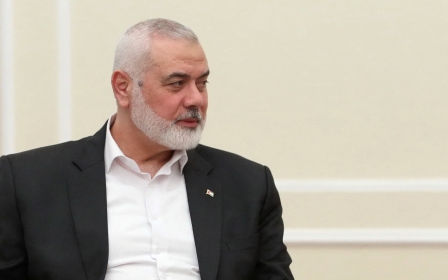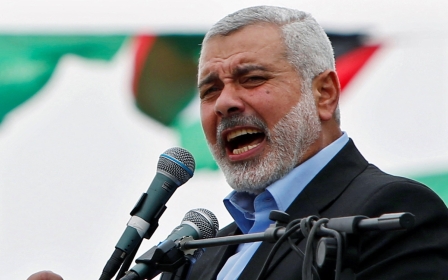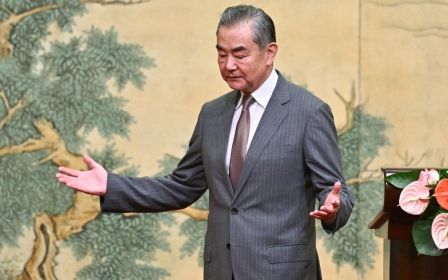US 'not involved' in the killing of Hamas leader Haniyeh, says Blinken

The United States was neither involved in nor made aware of the Israeli assassination of Hamas leader Ismail Haniyeh, Secretary of State Antony Blinken said on Wednesday.
"This is something we were not aware of or involved in. It's very hard to speculate," Blinken said in an interview with Channel News Asia (CNA) during a visit to Singapore.
Haniyeh was killed in an Israeli strike in Tehran earlier on Wednesday, hours after he attended a swearing-in ceremony for Iran's new president, Masoud Pezeshkian.
When asked whether the assassination would change the course of the war, Blinken responded: "It's very hard to speculate, and I've learned over many years never to speculate on the impact one event may have on something else."
He said that Washington would instead "continue to labour" for a ceasefire "for as long as it takes to get there".
New MEE newsletter: Jerusalem Dispatch
Sign up to get the latest insights and analysis on Israel-Palestine, alongside Turkey Unpacked and other MEE newsletters
"It's vitally important to help end the suffering of Palestinians in Gaza. It's vitally important to get the hostages home, including a number of Americans," Blinken added.
"It's vitally important to hopefully put things on a better path for more enduring peace and more enduring security, so that focus remains."
Haniyeh's killing was the second high-profile assassination attributed to Israel within hours, following a strike in Beirut that killed senior Hezbollah commander Fuad Shukr, heightening fears that the region was sliding towards a full-blown war.
CBS News reported that Washington believed Haniyeh and Shukr were killed in Israeli air strikes, citing an American official.
Israel did not immediately comment on Haniyeh's death. It typically neither confirms nor denies assassination attempts on foreign soil.
A source with knowledge of the ongoing ceasefire talks told CBS News that Haniyeh's assassination would likely complicate mediation efforts, as he was "a key decision maker" in the negotiations.
"He was someone who saw the value of a deal and was instrumental to getting certain breakthroughs in the talks," the source told CBS News. "At this stage, it's unclear what the effect will be on ceasefire talks."
Middle East Eye delivers independent and unrivalled coverage and analysis of the Middle East, North Africa and beyond. To learn more about republishing this content and the associated fees, please fill out this form. More about MEE can be found here.




